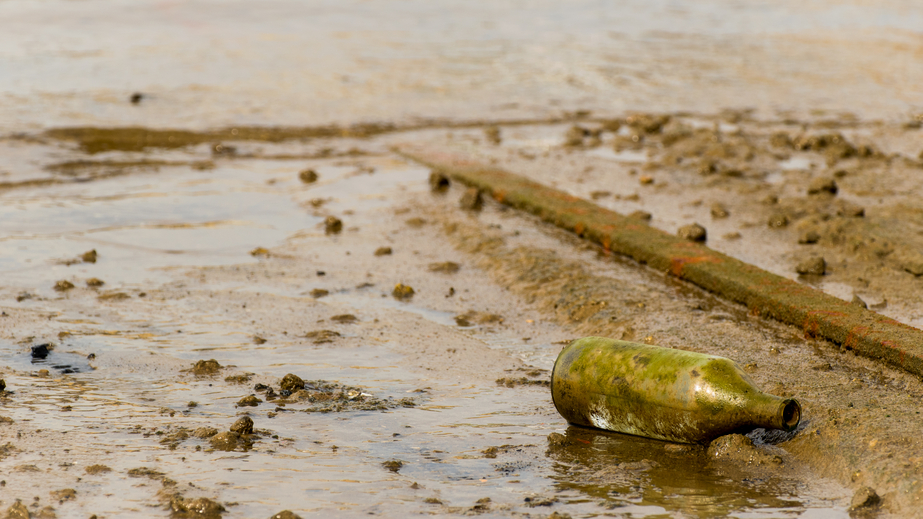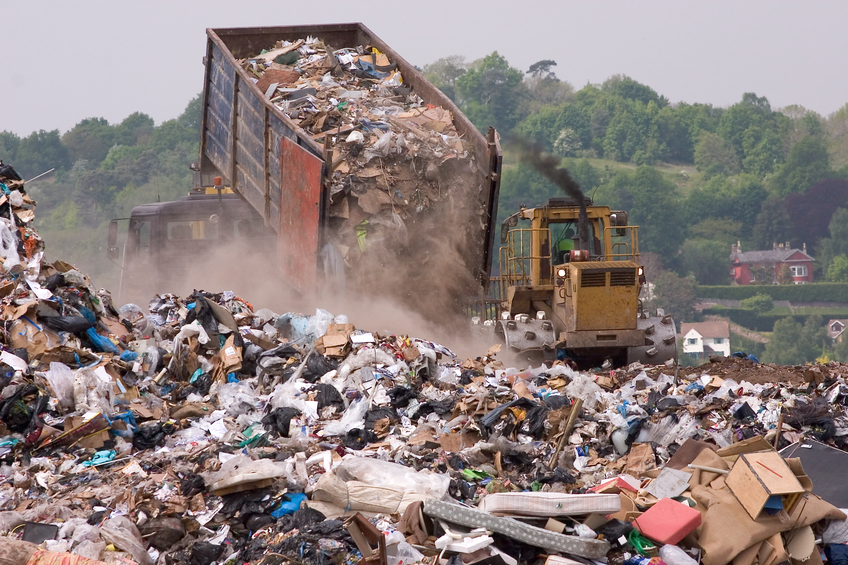New York Environmental and Ethics 18 PDH Discount Package 2
Courses in this Package
Identification and Selection of Remedial Action Alternatives (C08-002)
Solid Waste Disposal Facility - Operating Criteria (C04-001)
Disposal Technologies for Hazardous and Toxic Waste (C02-006)
Revitalizing Contaminated Lands: Addressing Liability Concerns (C03-061)
Ethical Issue: Deciding if Something is a Gift or a Bribe (LE1-007)

This online engineering PDH course provides technical guidelines that will aid in the identification and selection of remedial actions at uncontrolled hazardous waste sites. It presents information on site-specific corrective measure alternatives including performance of preliminary assessments and site investigations to define the problem and determine its extent; remedial investigations and feasibility studies to develop options for remedial action; and selection of one or more cost-effective remedial actions in support of clean-up activities.
This 8 PDH online course is applicable to civil, environmental or geotechnical engineers, as well as design and construction personnel involved with hazardous and toxic waste remedial activities.
This PE continuing education course is intended to provide you with the following specific knowledge and skills:
- Determination of the nature and extent of contamination
- Establishment of clean-up criteria
- Development and screening of remedial action alternatives
- Detailed analysis of remedial action alternatives
In this professional engineering CEU course, you need to review Chapter 2 of the US Corps of Engineers Publication EM 1110-1-502, "Identification and Selection of Remedial Action/Corrective Measure Alternatives".
Upon successful completion of the quiz, print your Certificate of Completion instantly. (Note: if you are paying by check or money order, you will be able to print it after we receive your payment.) For your convenience, we will also email it to you. Please note that you can log in to your account at any time to access and print your Certificate of Completion.

This online engineering PDH course contains a series of operating requirements pertaining to routine operation, management and environmental monitoring at municipal solid waste landfill (MSWLF) units. The operating requirements pertain to new MSWLF units, existing MSWLF units, and lateral expansions of existing MSWLF units.
EPA has developed these operating requirements to assist owners/operators in achieving compliance with the criteria and ensure the safe daily operation and management at MSWLF units. These operating requirements apply to owners and/or operators of MSWLF units operating on or after October 9, 1993.
This 4 PDH online course is applicable to owners and/or operators of MSWLF units, as well as engineers, designers, managers, construction workers and any other personnel involved with the operation and maintenance of municipal solid waste landfills.
This PE continuing education course is intended to provide you with the following specific knowledge and skills:
- Exclusion of hazardous waste
- Cover material application
- Disease vector control
- Explosive gases control
- Air monitoring
- Facility access
- Run-on/run-off control systems
- Surface water requirements
- Liquid restrictions
- Recordkeeping requirements
In this professional engineering CEU course, you need to review Chapter 3, "Operating Criteria" of the EPA "Solid Waste Disposal Facility" Technical Manual.
Upon successful completion of the quiz, print your Certificate of Completion instantly. (Note: if you are paying by check or money order, you will be able to print it after we receive your payment.) For your convenience, we will also email it to you. Please note that you can log in to your account at any time to access and print your Certificate of Completion.

This online engineering PDH course provides guidance for the design of disposal systems. A disposal system is a properly engineered facility used for ultimate disposal of hazardous waste into or on land or water. Disposal systems have general applicability to all types of waste streams.
The different disposal techniques are collectively capable of handling wastes in solid, semisolid, and liquid forms. As many disposal systems have shown migration or dispersion of the contaminants to the surrounding environment, there is usually strong public resistance to siting a solid or hazardous waste disposal facility.
This 2 PDH online course is applicable to civil and environmental engineers, as well as design and construction personnel involved with hazardous and toxic waste treatment and disposal activities.
This PE continuing education course is intended to provide you with the following specific knowledge and skills:
- Onsite disposal techniques
- Offsite disposal techniques
In this professional engineering CEU course, you need to review Chapter 5 of the US Corps of Engineers Publication EM 1110-1-502, "Disposal Technologies".
Upon successful completion of the quiz, print your Certificate of Completion instantly. (Note: if you are paying by check or money order, you will be able to print it after we receive your payment.) For your convenience, we will also email it to you. Please note that you can log in to your account at any time to access and print your Certificate of Completion.

This online engineering PDH course discusses the statutory, policy, guidance, and regulatory provisions that may be helpful to parties looking to manage environmental clean-up liability risks associated with the revitalization of contaminated sites. It is designed for use by parties involved in the assessment, clean-up, and revitalization of sites, and provides a basic description of the tools that may be available to address liability concerns.
Revitalizing contaminated lands means providing reuse opportunities of abandoned properties to communities and land owners by cleanup enforcement program. The main objective of the cleanup enforcement program is to ensure prompt site cleanup and the participation of liable parties in performing and paying for cleanups in a manner that ensures protection of human health and the environment.
This 3 PDH online course is applicable environmental, civil, and industrial engineers as well as others interested in learning more about revitalizing contaminated lands.
This PE continuing education course is intended to provide you with the following specific knowledge and skills:
- Learning the enforcement tools to help promote the clean-up and revitalization of contaminated sites
- Understanding the policies available to help promote cleanup and revitalization of contaminated sites
- Knowing how to manage the environmental cleanup liability risks associated with the revitalization of contaminated sites for parties
- Familiarizing with the available tools to address liability concerns
Upon successful completion of the quiz, print your Certificate of Completion instantly. (Note: if you are paying by check or money order, you will be able to print it after we receive your payment.) For your convenience, we will also email it to you. Please note that you can log in to your account at any time to access and print your Certificate of Completion.

This online engineering PDH course will establish, through the presentation of many examples, the principles of distinguishing between a gift and a bribe.
The federal government has formulated detailed rules covering gifts given to executive-branch employees in many situations. The rules are published in the Code of Federal Regulations (CFR) and are illustrated through many examples. Even though the examples are intended for government employees (many of whom are engineers), they also apply to private-sector engineers in similar situations. This course presents selected CFR examples that furnish guidance on the ethics of gift giving in situations that are especially relevant to engineers.
This 1 PDH online course is intended for engineers seeking guidance on distinguishing between ethical gift-giving and bribery.
This PE continuing education course is intended to provide you with the following specific knowledge and skills:
- Familiarizing with definitions of a bribe and a gift
- Knowing the bribe status of a gift based on a personal relationship
- Understanding the conditions under which gifts to spouses are acceptable
- Knowing the need to avoid even the appearance of a gift being a bribe
- Recognizing when gifts involving free attendance at meetings and conferences are acceptable
- Understanding the importance of the cumulative effect of receiving even small gifts on a periodic basis
- Learning the importance of gifts received when on assignment rather than outside of work
Upon successful completion of the quiz, print your Certificate of Completion instantly. (Note: if you are paying by check or money order, you will be able to print it after we receive your payment.) For your convenience, we will also email it to you. Please note that you can log in to your account at any time to access and print your Certificate of Completion.